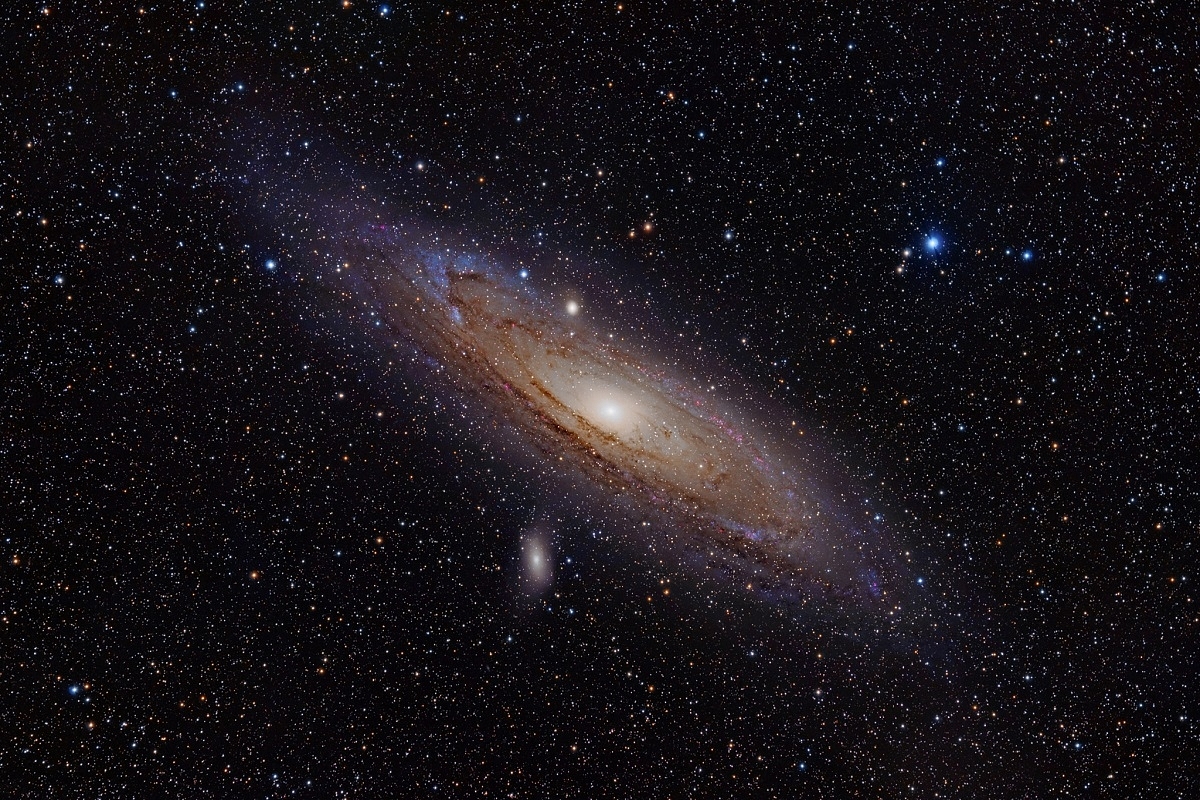News Brief
Scientists Identify Multitude Of Milky Way-Like Galaxies In Early Universe, Raising Hopes For Potential Life Zones

Andromeda Galaxy. (Representative Image)
Astronomers have made fascinating discoveries about Milky Way-like galaxies that could impact our understanding of extraterrestrial life.
Researchers from the University of Manchester and the University of Victoria in Canada used the James Webb Space Telescope (JWST) to find a surprising number of these galaxies in the universe, challenging previous beliefs.
Their study aimed to explore how common Milky Way-like galaxies are. They formed an international team and employed the JWST, revealing that these galaxies are more widespread than previously thought. In fact, they seem to dominate the universe, suggesting they are not as rare as assumed.
This discovery suggests that Milky Way-like galaxies are about 10 times more common than once believed, raising exciting possibilities for the existence of life beyond Earth.
In the past, scientists thought these galaxies couldn't exist in the early universe.
However, this new research, supported by both the Hubble Space Telescope and the JWST, challenges that view.
Professor Christopher Conselice from the University of Manchester explains that the discovery of these galaxies forming early in the universe contradicts our prior understanding.
The research also shows that disk galaxies, like the Milky Way, started forming much earlier than previously thought, almost at the beginning of the universe.
According to scientists, this discovery has significant implications as it challenges the old belief that certain galaxy types, such as those resembling the Milky Way, couldn't emerge in the early universe.
The insights from the JWST observations prompt the scientific community to reconsider their existing knowledge of how galaxies form and evolve.
This research also opens up exciting possibilities and encourages scientists to explore new frontiers, shining fresh light on the mysteries of our cosmos.
Support Swarajya's 50 Ground Reports Project & Sponsor A Story
Every general election Swarajya does a 50 ground reports project.
Aimed only at serious readers and those who appreciate the nuances of political undercurrents, the project provides a sense of India's electoral landscape. As you know, these reports are produced after considerable investment of travel, time and effort on the ground.
This time too we've kicked off the project in style and have covered over 30 constituencies already. If you're someone who appreciates such work and have enjoyed our coverage please consider sponsoring a ground report for just Rs 2999 to Rs 19,999 - it goes a long way in helping us produce more quality reportage.
You can also back this project by becoming a subscriber for as little as Rs 999 - so do click on this links and choose a plan that suits you and back us.
Click below to contribute.
Latest